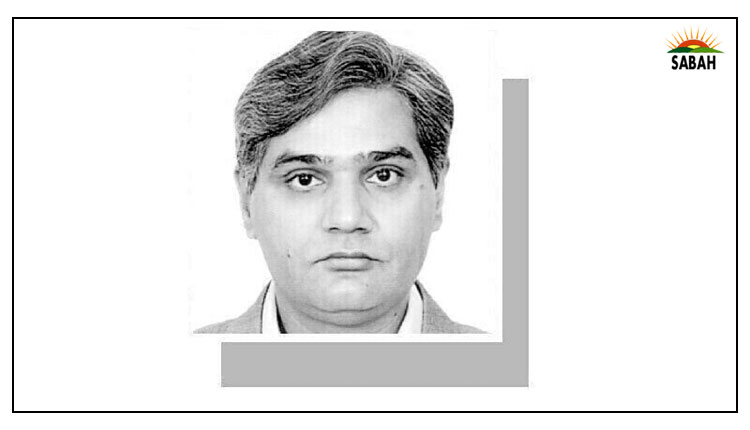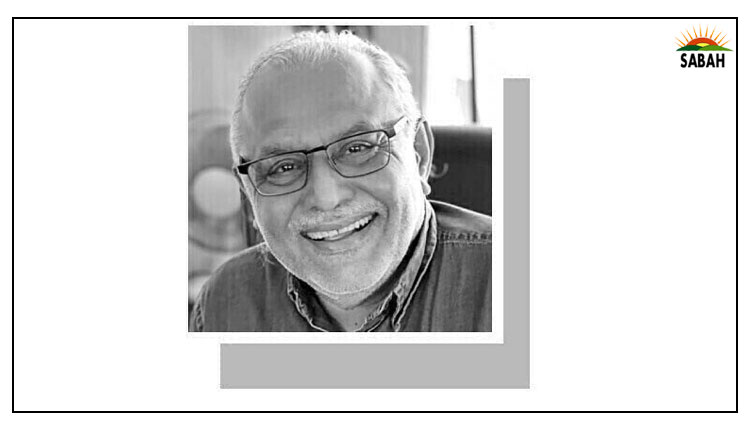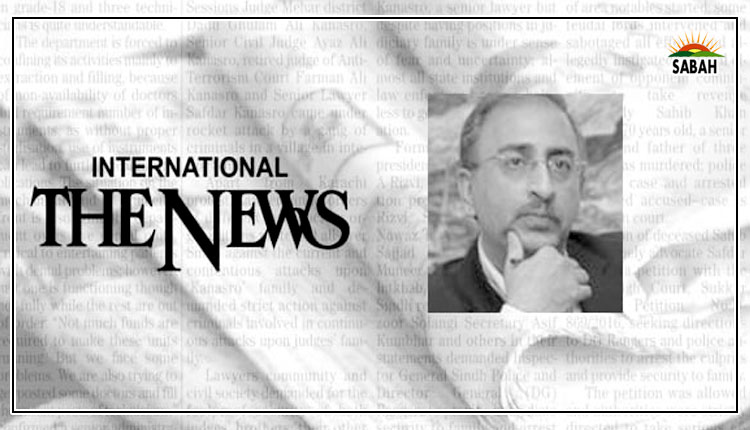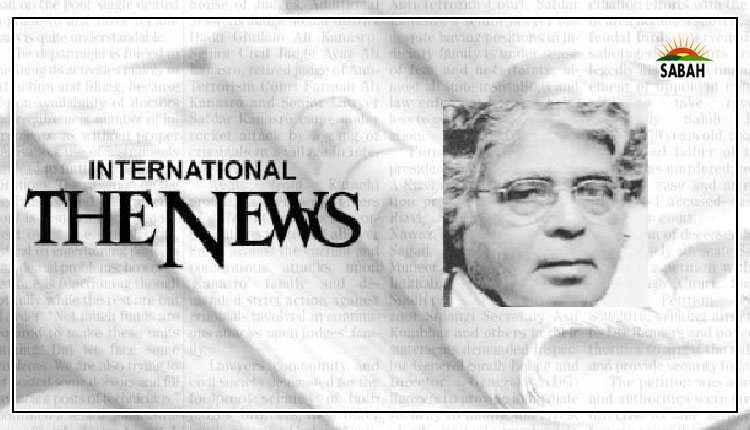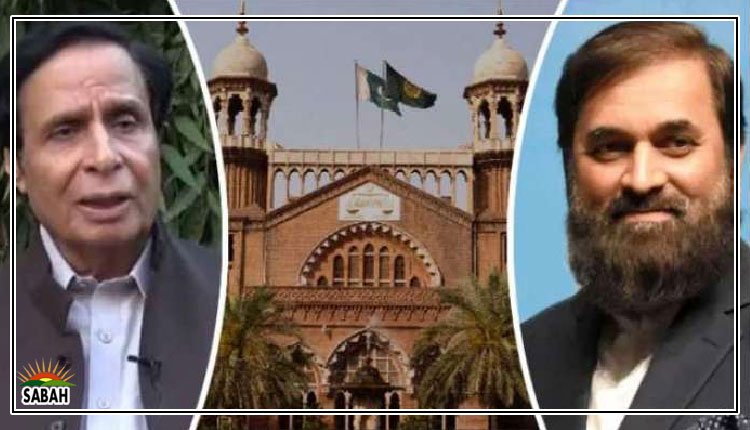Governor Punjab Balighur Rehman withdraws Pervaiz Elahi’s de-notification order; LHC disposes of Elahi’s petition
LAHORE, Jan 12 (SABAH): Punjab Governor Engineer Mian Muhammad Balighur Rehman on Thursday withdrew Chief Minister Chaudhry Pervaiz Elahi’s de-notification order upon which the Lahore High Court (LHC) disposed of the petition challenging the governor’s order.
Following weeks of political turbulence in Punjab, CM Chaudhry Pervaiz Elahi proved his majority in the provincial assembly, winning the much-hyped vote of confidence amid ruckus and opposition’s boycott in the early hours of Thursday.
The vote of confidence that commenced after midnight concluded with the Pakistan Muslim League-Quaid (PML-Q) and Pakistan Tehreek-e-Insaf (PTI) coalition showing majority in the provincial legislature with the support of 186 lawmakers – the minimum number of votes required to win the trust vote.
The vote took place while a five-member larger bench of the LHC, led by Justice Abid Aziz Sheikh and comprising Justice Chaudhry Muhammad Iqbal, Justice Muzammil Akhtar Shabir, Justice Tariq Saleem Sheikh and Justice Asim Hafeez was hearing CM Elahi’s plea against the governor’s two orders, including the de-notification of his cabinet.
With a clear direction that the Punjab CM should not violate the undertaking of not dissolving the provincial assembly, the LHC had sought further arguments by Thursday on Elahi’s plea against the governor’s two orders, including the de-notification of his cabinet.
A larger bench of the LHC, led by Justice Abid Aziz Sheikh heard the case on Wednesday. As proceedings had commenced, Justice Sheikh had asked Elahi’s counsel Barrister Ali Zafar and the Federation whether they had reached any consensus over the matter of the time frame for the vote of confidence.
Attorney General of Pakistan (AGP) Barrister Mansoor Usman Awan had argued that sufficient time had been given for the vote, but the chief minister had failed to obtain it. “If both parties agree on a date, [otherwise] this bench will fix that date for the vote of confidence,” Justice Aziz had remarked.
At that point, Barrister Zafar had argued that they did not agree due to some reasons that establish the illegality of the governor. Justice Aziz had asked whether the barrister understood that the prevailing political circumstances were enough for the vote, wondering whether he would stick to his argument.
Continuing his arguments on Thursday, the barrister submitted a copy of last night’s vote and said that “we have taken a vote of confidence,186 members [of the provincial assembly] voted in support of the CM”. “We have ended the political crisis,” announced Elahi’s counsel.
Justice Abid Aziz Sheikh inquired if the Punjab governor had been satisfied, to which his lawyer argued that “the vote of confidence last night did not fulfil the rules and regulations”.
The attorney general (AG) went on to argue that the vote records should be made part of the court arguments.
Justice Abid Aziz and Justice Asim Hafeez pondered over the possibilities if the governor were to call another vote of confidence but the AG maintained that “this is no longer required after [what unfoldeded] on the assembly floor”.
The court noted that the vote of confidence had indeed been taken but remarked that the move had been premature and that “it may well have been the case that we would have declared the governor’s notification was not correct”.
“The copy you have presented states that you took the vote of confidence according to Article 137,” observed Justice Abid Aziz, “this means that you have accepted the governor’s order as correct. If the order is declared illegal, then the matter of taking your vote will be null and void”.
The high court then went on to say that if “both parties agree, then the court will issue a notification that the vote of confidence that the governor had ordered has been tested”.
Upon this, the Punjab governor’s advocate stated that there was no need for the court to seek consensus and that the LHC could issue the orders.
Justice Abid Aziz remarked that it remains to be argued whether the time granted by the governor to hold the vote of confidence was appropriate or not.
“Our question is that if the governor were to issue such an order every week, then what would happen,” said Justice Hafeez. “Where would the issue then stop?” questioned the court.
Justice Abid Aziz further questioned how it would be determined that the grounds behind the governor’s decision to call a vote of confidence were “satisfactory” and whether it is necessary to establish the governor’s confidence in each session of the assembly.
During the proceedings, concerns were raised over the amount of time a governor may allow when calling for a vote of confidence, however, Ali Zafar contended that it would be illegal for the governor to fix the time and remove a chief minister in this manner as this is a matter for the speaker to determine.
Later, Governor Punjab Balighur Rehman’s lawyer informed the court that he has accepted the vote of confidence and withdrawn his previous order denotifying the CM.
The court observed that two orders had been challenged, one whereby the governor had called for a vote of confidence and the other whereby the CM had been denotified. As both matters were now settled with the governor withdrawing his order, the LHC held that there was no need for intervention by the court.
Welcoming the development, Justice Abid Aziz remarked that the matter was resolved within the assembly and all matters were settled as per the constitution and the law, and the court disposed of the petition.
Meanwhile, the court set aside a notification by the chief secretary that had suspended the CM and his cabinet.
The petition, filed by Elahi, named the Punjab governor through his principal secretary, the government of Punjab through its chief secretary and the PA speaker as respondents.
The application was submitted through Barrister Syed Ali Zafar and Advocate Amir Saeed.
It said that on December 19, Governor Balighur Rehman issued an order summoning a PA session and requiring the chief minister to seek a vote of confidence from the house.
“In response to the order, the PA speaker gave a ruling declaring the summoning of the session to be unconstitutional and adjourned the ongoing session till Dec 22.”
The petition stated that both of Rehman’s order — for the vote of confidence and the de-notification — was passed “without lawful authority and are of no legal effect”.
It reasoned that the governor’s order regarding summoning a PA session was illegal under the Constitution and Rules of Procedure of the Provincial Assembly of the Punjab 1997.
“Without prejudice to the unconstitutionality of Respondent 1’s [the governor] act of summoning the session of Punjab Assembly during an already ongoing session, it is respectfully submitted that the governor neither the appointing authority of the petitioner nor has the power to remove the petitioner, and there is no constitutional provision enabling the Respondent No. 1 to pass the impugned order dated 22.12.2022 and declaring that the Petitioner ceases to hold his office of Chief Minister Punjab.”
The petition went on to say that Rehman’s order was “not sustainable because it has been passed due to grave misconstruction of the facts”.
It also highlighted that the de-notification order was “not sustainable as the resolution of vote of no confidence moved by the 20 percentum is pending before the Provincial Assembly, and the impugned order would make the resolution in-fructuous which would undermine the right of members of the Provincial Assembly regarding the vote of no confidence against the petitioner/Chief Minister”.
Subsequently, the petition prayed that the Punjab governor’s orders issued on Dec 19 and Dec 22 should be declared to be passed without any lawful authority and of no legal effect.
“It is further prayed that it may kindly be declared that the summoning of the session of the Punjab Assembly by the governor during an already ongoing session is unconstitutional, unlawful and of no legal effect,” it requested.
The petition pleads that the court should declare that there was no eventuality which lead to the conclusion that Elahi did not command the majority of the members of the provincial assembly.
“It is further prayed that it may kindly be declared that the Petitioner does not cease to hold his office of Chief Minister Punjab,” it stated, adding that the dissolution of the provincial cabinet should also be declared unlawful.







